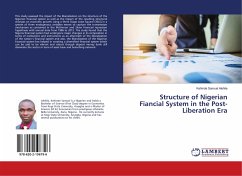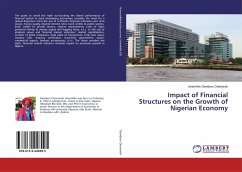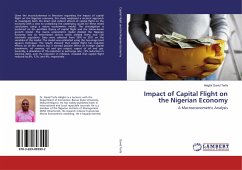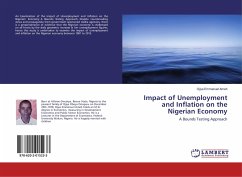This study assessed the impact of the liberalization on the structure of the Nigerian financial system as well as the impact of the resulting structural changes on economic growth using a three Stage Least Square (3SLS) in a system of three endogenous variables meant to capture the transmission mechanism as contained in the McKinnon and Shaw financial repression hypothesis with annual data from 1986 to 2012. The study found that the Nigeria financial system had undergone major changes in its composition in terms of institutions and instruments as an aftermath of the liberalization of the nation's financial system and also, the liberalization of the Nigerian financial system has helped in creating a diversified financial system which can be said to be vibrant and robust though deposit money bank still dominate the sector in term of asset base and branching network.
Bitte wählen Sie Ihr Anliegen aus.
Rechnungen
Retourenschein anfordern
Bestellstatus
Storno








